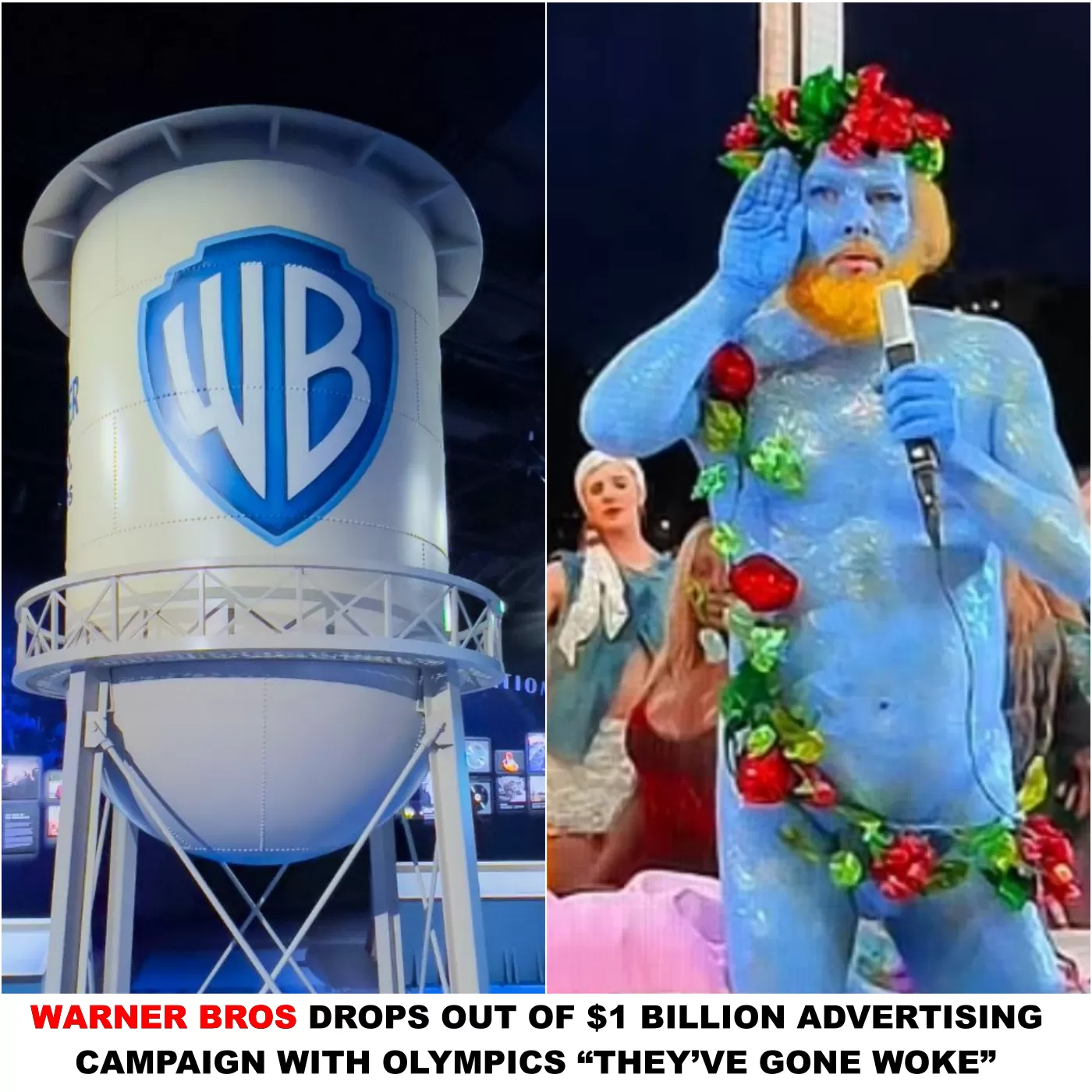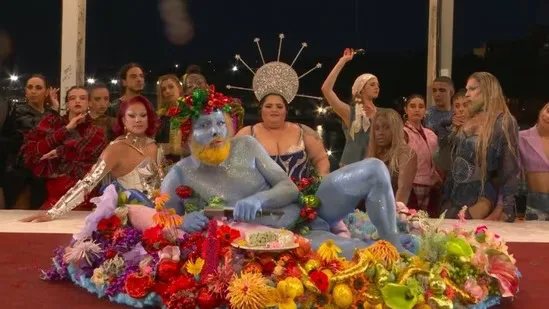Warner Bros Backs Out of $1 Billion Olympics Advertising Campaign, Citing Concens Over Event’s “Woke” Direction
In a surprising turn of events, Warner Bros has decided to pull out of a $1 billion advertising campaign tied to the upcoming Olympic Games. The entertainment giant cited growing concerns over the event’s shift towards “woke” ideologies as the primary reason for their withdrawal. This decision has sparked a heated debate in the industry and among the public, as it highlights the increasing tension between corporate interests and social justice movements.
 Warner Bros, known for its blockbuster movies and iconic franchises, had initially planned an extensive advertising campaign to coincide with the Olympics, leveraging the global reach of the event to promote its latest releases and digital platforms. However, recent developments within the International Olympic Committee (IOC) and the event’s host city have emphasized a strong commitment to diversity, inclusion, and progressive values. This includes support for LGBTQ+ athletes, anti-racism initiatives, and a broader platform for social justice issues.
Warner Bros, known for its blockbuster movies and iconic franchises, had initially planned an extensive advertising campaign to coincide with the Olympics, leveraging the global reach of the event to promote its latest releases and digital platforms. However, recent developments within the International Olympic Committee (IOC) and the event’s host city have emphasized a strong commitment to diversity, inclusion, and progressive values. This includes support for LGBTQ+ athletes, anti-racism initiatives, and a broader platform for social justice issues.
While many corporations have embraced these changes, Warner Bros has expressed discomfort with what it perceives as a politicization of the sporting event. In a statement, the company said, “The Olympics have always been a celebration of global unity and athletic excellence. However, recent actions and statements from the IOC and associated parties have taken a distinct turn towards political and social activism, which diverges from the neutral, inclusive spirit we support.”
The term “woke” has become a lightning rod in contemporary discourse, often used to describe awareness and activism surrounding social justice issues. For some, it represents a necessary and overdue reckoning with systemic inequalities. For others, it is seen as an imposition of particular political and cultural values that can alienate or polarize audiences.
Warner Bros’ decision reflects a growing concern among some companies that aligning too closely with these movements could backfire. Critics argue that the entertainment industry, traditionally seen as a bastion of liberal values, may risk alienating certain audience segments by overtly endorsing progressive causes. On the other hand, supporters of the Olympics’ direction argue that sports, like all cultural platforms, have a responsibility to reflect and promote social progress.
The fallout from Warner Bros’ withdrawal has been mixed. Some industry analysts praise the move as a principled stand against the politicization of entertainment and sports. Others criticize it as a retreat from necessary social progress, accusing the company of prioritizing profits over principles.

The broader implications of this decision are yet to be seen. For the Olympics, losing a major advertiser could have financial ramifications, especially as they continue to navigate the challenges posed by global events like the COVID-19 pandemic. For Warner Bros, the choice may influence its brand image, potentially attracting support from those critical of “woke” culture while risking backlash from advocates of social justice.
Warner Bros’ decision to withdraw from a significant advertising partnership with the Olympics underscores the complex and often contentious intersection of entertainment, politics, and social values. As corporations continue to navigate these waters, they must balance commercial interests with the evolving expectations of their audiences. Whether this move will pay off for Warner Bros or result in long-term consequences remains to be seen, but it undeniably marks a notable moment in the ongoing cultural conversation around “wokeness” and its role in public life.